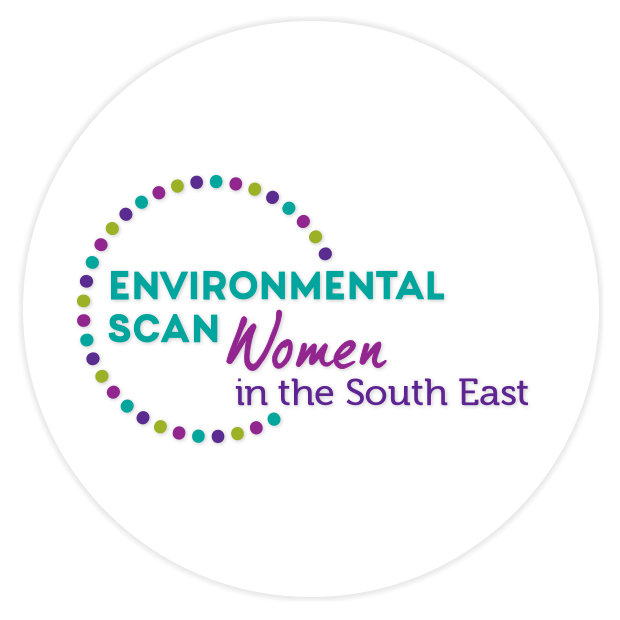
This is the Women’s Health in the South East (WHISE) second Environmental Scan of women’s health in our region.
This is the fourth of Women’s Health in the South East Environmental Scan of women’s health in our region.
The scan is designed to be a snapshot of information presented in a public forum that defines for our stakeholders the direction that we are taking over the next 12 months, what we are noticing, and what we think it means.
The scan is designed to be a resource to WHISE and our partners, stakeholders and community. It describes:
- Our region – where we work.
- The diversity and characteristics of the people who live in it.
- The nature of the economic and employment status – now and in the future.
- The nature of our core business – primary prevention and health promotion – and any latest views on this area of work.
- Key policy from the government impacting our work.
- Key issues for women’s health that we are working on and evidence underpinning that work.
The scan informs the work that we do on an annual basis and represents the core evidence-base that we use to inform our understanding of the needs of all women in our region.
Our recommendations for our practice will build on our commitment to gender equality and social determinants of health, build on the evidence-base of health promotion and primary prevention, and look to engage in the emerging priority areas of work:
- Mental health and wellbeing
- Climate change and disaster – including the pandemic
- Older women
We thank you for your consideration of our third environmental scan and look forward to working with all our of partners, stakeholders, members and community to ensure that all women in our region are safe, healthy and thriving.
The Scan covers the following:
The Southern Metropolitan Region (SRM) covers an area of 2,888 square kilometres, representing about one-quarter of the state’s total population.
Contrasting demographics highlight diverse needs amongst various municipalities.
The social determinants of health are strongly influenced and shaped by access to income, education and resources that women have access to.
Emerging areas to explore include mental health and wellbeing, climate change and disaster and aging.
The social determinants of health are complex and many.
They drive the health and wellbeing of women and we need to understand these to undertake health promotion and primary prevention in the Southern Region.
Law and Regulation From local, to state to federal government’s all government policy, legislation and regulation impacts – positively or negatively – the health and wellbeing of women in our region.
- Gender Equity
- Prevention of Violence against Women
- Sexual and Reproductive Health
